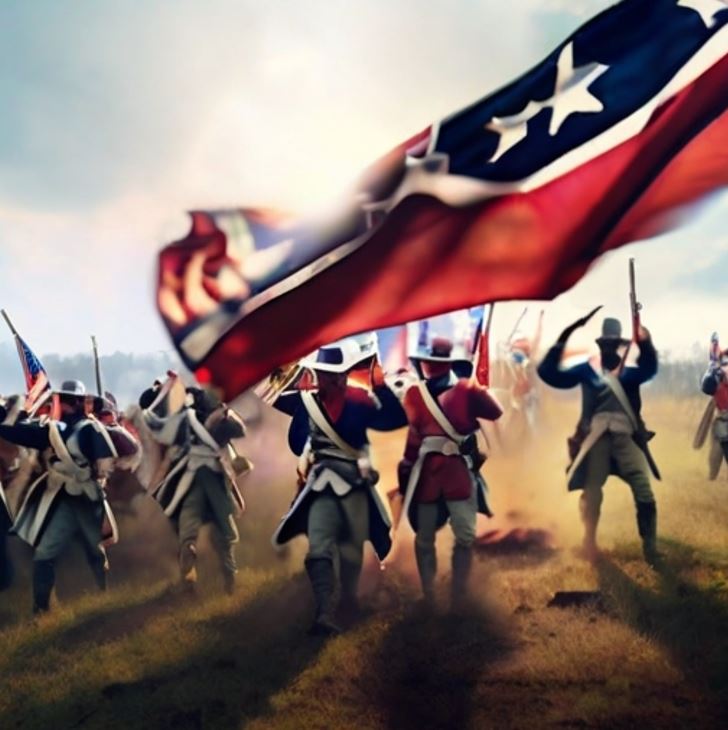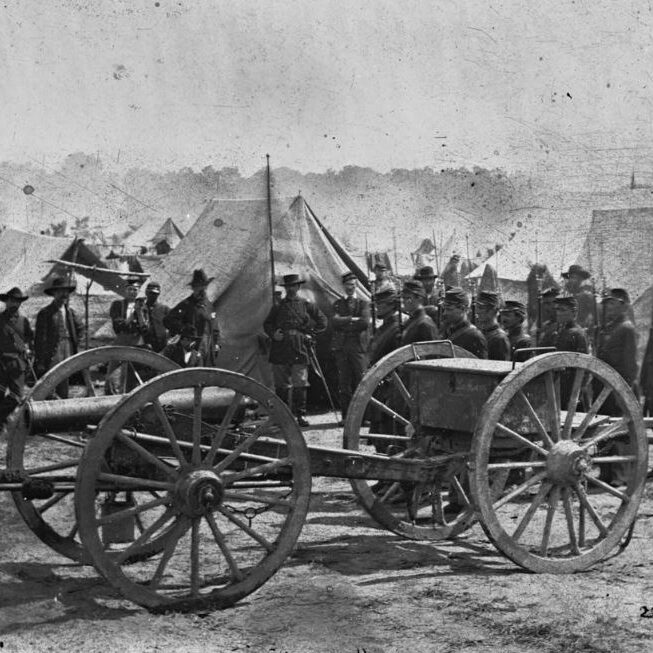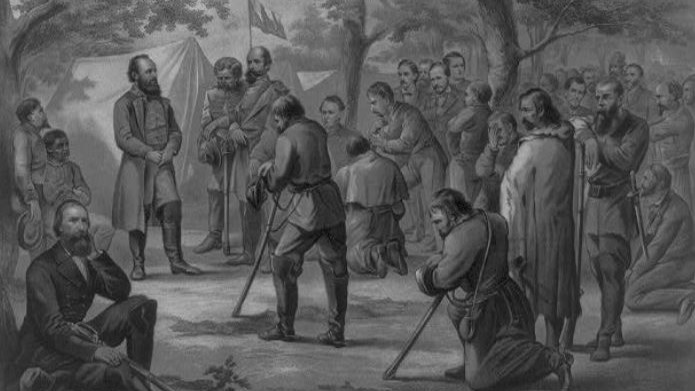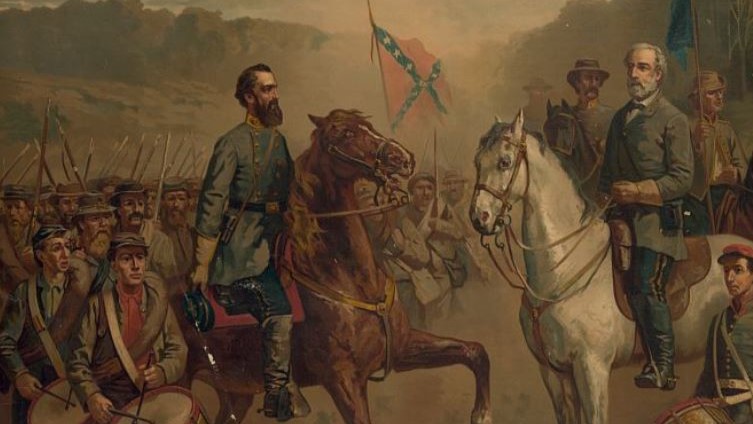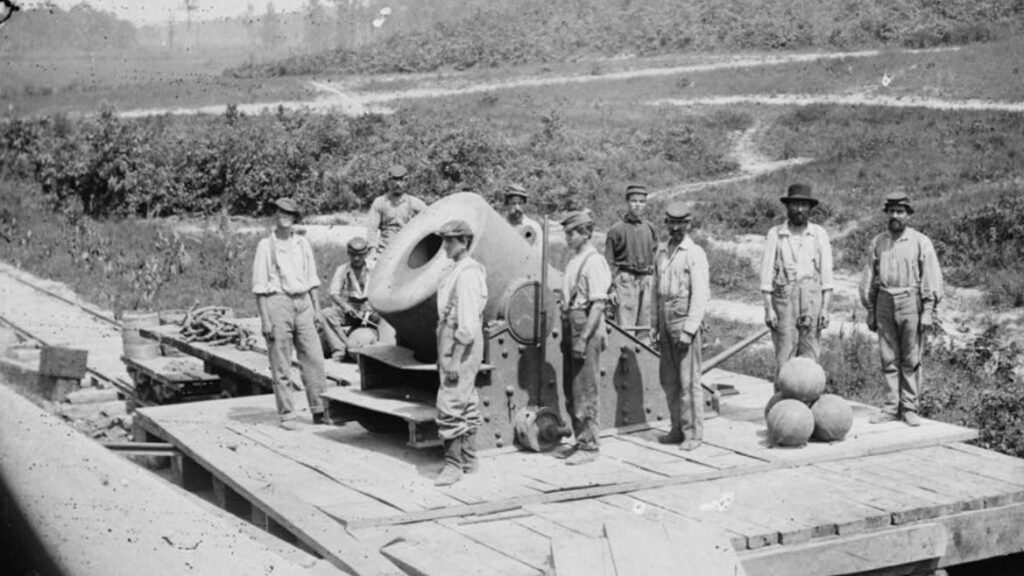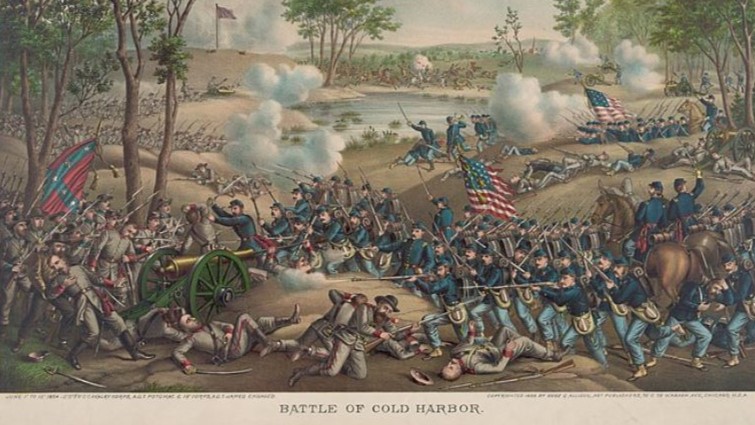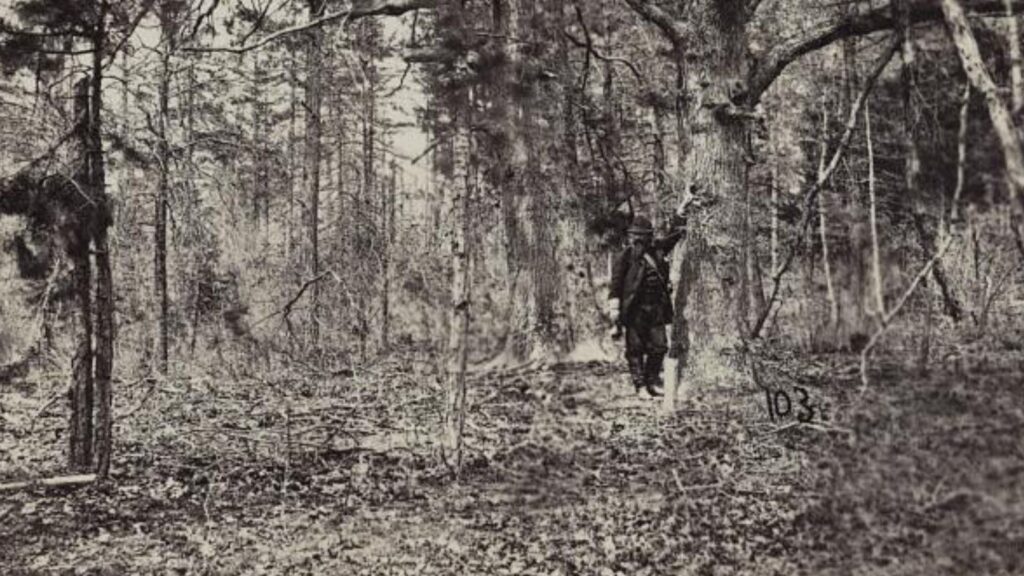Was the South ever close to winning the Civil War? The outcome of the Civil War was not inevitable – the South had a real chance at independence. With different strategic decisions and some good fortune, the Confederacy could have achieved its goal of permanent separation from the United States.
The Union’s objective was to force the seceded states back into the federal government, both politically and militarily. This required invading the South, defeating its armies, and breaking the population’s will to fight.
In contrast, the Confederacy merely needed to continue existing as a nation and resisting Northern efforts. As long as any Confederate force remained in the field, the South was succeeding.
In this article, we explore the possible scenarios that could have tilted the Civil War in the South’s favor. Read here to find out what would have happened after a South victory.
- 1. The South Only Needed to Avoid Losing
- 2. International Support Could Have Turned the Tide
- 3. Northern Public Opinion Hinged on Key Victories
- 4. The Election in 1864 Could Have Ended the War
- 5. Embracing Guerrilla Tactics Could Have Helped the South
- Final Thoughts on a Possible Confederate Victory
- Further Reading
1. The South Only Needed to Avoid Losing
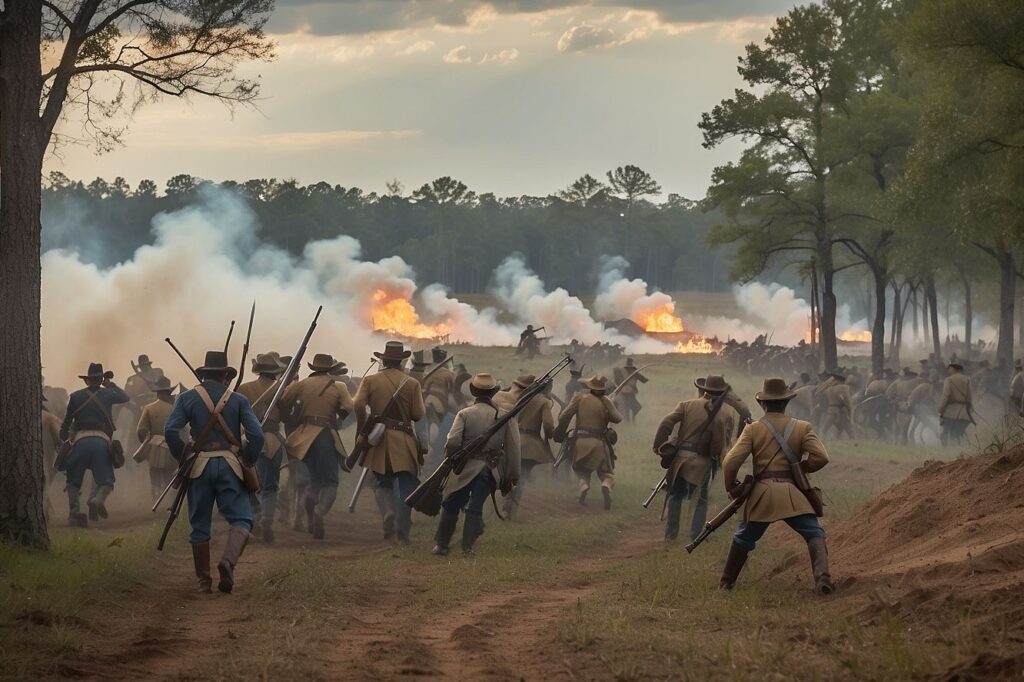
For the South, total military victory was never essential – just the ability to keep fighting and defending its territory.
But the North needed to fully conquer and subjugate the Confederacy to achieve re-unification.
The Confederacy came dangerously close to demoralizing the North on multiple occasions. Had Lee won decisively at Gettysburg or Atlanta held out a bit longer, Union war fatigue may have reached a breaking point. The South put more men in the field in the first years and won stunning tactical successes.
With skill and some luck, Confederate resistance could have broken Northern resolve.
2. International Support Could Have Turned the Tide
A key Confederate strategy was securing international recognition and support, especially from the major powers of Britain and France.
This would grant legitimacy to the Confederate cause, provide loans, and open the possibility of military intervention. Even limited foreign aid could have significantly altered the war’s course.
The South relied heavily on cotton to obtain British backing, since textile mills depended on southern exports. In 1861, Britain declared neutrality instead of recognizing Confederate independence, but tensions remained high.
The Trent Affair

The Trent Affair of 1861, occurring amid the American Civil War, was a critical event that brought the United States and Great Britain to the brink of war. The incident unfolded when the U.S. Navy, represented by the USS San Jacinto, intercepted the British mail packet RMS Trent, capturing Confederate envoys James Mason and John Slidell. This act, initially celebrated by the U.S. public, led to heightened tensions, with the possibility of war looming on the horizon.
In Britain, there was widespread disapproval of what was perceived as a violation of neutral rights and an insult to national honor. The British government demanded an apology and the release of the captured prisoners.
However, British leaders were cautious, emphasizing neutrality and avoiding direct challenges to the Union blockade.
At this moment, Confederate diplomacy could have secured full British recognition and military alliance. War between Britain and the Union could have led to the breaking of the Union blockade. British ships could have also provided arms and supplies directly to the South.
Military Achievements
In autumn 1862, the Confederate victory at Second Manassas and Lee’s first invasion of the North put pressure on Britain to act.
Had the South succeeded with victory at Gettysburg in 1863 and with deft diplomacy, the South may have gained international backing at key moments that altered the war’s outcome.
3. Northern Public Opinion Hinged on Key Victories
By 1864, the Northern public was growing weary after years of brutal fighting and huge casualties with no end to the war in sight.
As the presidential election approached, anti-war sentiment was rising and support for a negotiated peace grew. Lincoln needed battle victories to boost morale and maintain the resolve to continue fighting.
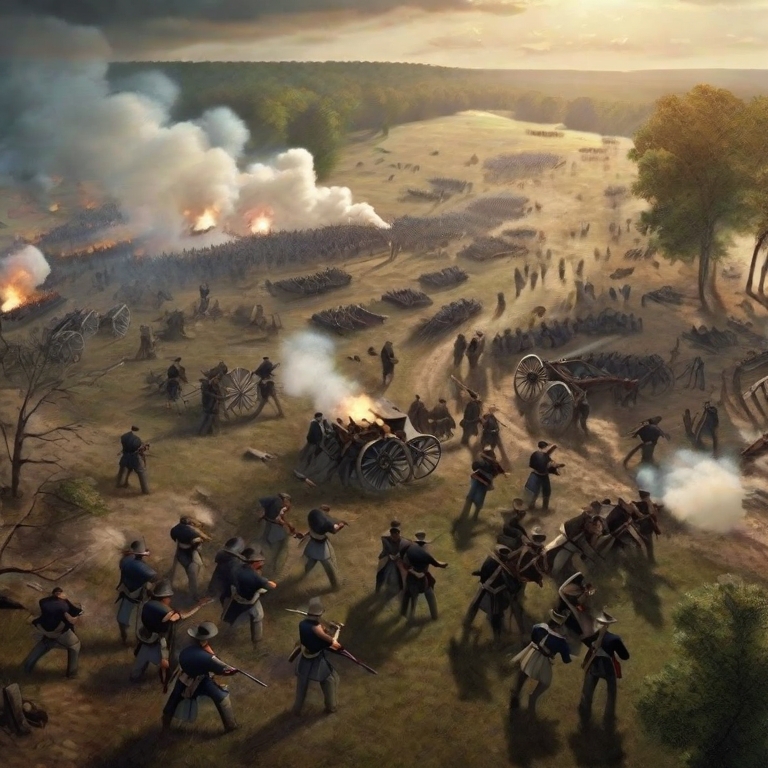
Two key Union triumphs in 1863-1864 helped sustain northern morale at crucial moments.
The first was at Gettysburg in July 1863, where the North repelled Lee’s daring Pennsylvania invasion. This success relieved pressure on northern soil and provided a much-needed morale boost after the bloody setbacks of Fredericksburg and Chancellorsville. Gettysburg made Lee’s army seem beatable for the first time.
The second came in September 1864, when Union forces under Sherman finally captured the vital railroad hub of Atlanta after months of arduous campaigning. Coming just before the presidential vote, this victory re-energized northern hopes of winning the war. It proved a fatal blow to Confederate morale and helped secure Lincoln’s re-election.
Had Lee won at Gettysburg and Atlanta held out longer, profound northern war weariness may have taken hold, dooming Lincoln politically.
Two more years of bloody stalemate after these near-defeats could have triggered deep anti-war sentiment. This may have pressured Washington to seek a negotiated peace that granted the South independence in exchange for an armistice.
4. The Election in 1864 Could Have Ended the War
Abraham Lincoln faced a tough re-election battle in 1864.
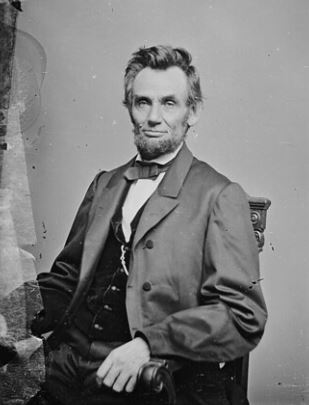
As the war dragged on with immense casualties and no end in sight, northern morale was waning. Lincoln’s Democratic challenger, George McClellan, advocated for a negotiated peace with the Confederacy, appealing to war-weary voters. With the public frustrated by the bloody stalemate, McClellan had a strong chance of victory.

If McClellan had won the election, he likely would have used Confederate advances like the bloody standoff at Petersburg to push for an immediate armistice with the South.
Unlike Lincoln, McClellan was willing to end the war without demanding southern re-unification under federal authority. This meant granting the Confederacy legitimacy as an independent nation in exchange for peace.
Ending the war in late 1864 with two recognized American nations would have been seen by many as the only pragmatic option. This may have permanently fractured the United States along the Mason-Dixon line.
A key Union condition – the abolition of slavery – may also have been bargained away by McClellan in his push for armistice, leaving the institution intact in the South.
Essentially, McClellan’s potential 1864 victory could have secured Southern independence at a moment of peak northern war fatigue. The election provided a pivotal opportunity to end the war on Southern terms.
5. Embracing Guerrilla Tactics Could Have Helped the South
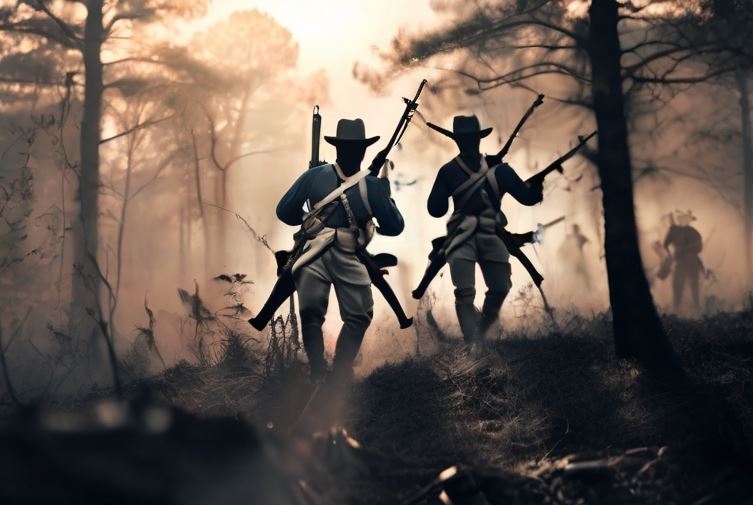
The Confederacy relied heavily on traditional armies and conventional tactics. But, Robert E. Lee’s preference for conventional warfare represents a lost opportunity.
But a shift to widespread guerrilla warfare could have exhausted Union forces and eroded northern support for the war.
The South had a large population experienced with life in rural environs and using firearms. These citizens were well-suited for decentralized hit-and-run attacks on Union supply lines and garrisons.
Ambushes, sabotage, sniping, and constant raids could have severely hampered Union operations and mobility in the South.
For example, Confederate bushwhackers and partisans operating in the Appalachian highlands could have significantly disrupted Union eastern armies. Striking aggressively along extended Union supply lines and then disappearing into familiar terrain before larger forces arrived could have worn down federal troops psychologically.
This type of guerrilla insurgency avoids costly direct battles against larger armies, as the Viet Cong did against the U.S. a century later.
Later Confederate leaders like Nathan Bedford Forrest showed the potential of mobile cavalry raiders.
Had the Confederacy fully embraced guerrilla tactics from the start, allowing Union armies to be constantly harassed while avoiding major defeats, Northern morale may have collapsed.
The South’s rural nature suited this people’s war approach. With a few tactical adjustments, the course of the war may have changed dramatically.
Final Thoughts on a Possible Confederate Victory
There was no inevitability to the outcome of the Civil War. While the South ultimately lost, victory was a real possibility under different circumstances.
With international aid, loss of public support in the North, an election shift, and unconventional warfare, the Confederacy’s bid for independence may have succeeded, forever altering America’s development.
Independence was a legitimate stance for many Southerners, not treason. The war’s unpredictable nature means we cannot dismiss a Southern triumph as impossible.
Evidence of possible success can be seen from other conflicts such as, the American Revolutionary War against the British and the Viet Cong in the Vietnam War, where against the odds the militarily weaker side won.
Further Reading
If you enjoyed this article, you may be interested to read more about the American Civil War events, or perhaps read about the how the north won the war or what would have happened had the south won. Read here to find out more about the bloodiest battles of the Civil War. Read here for more general American history.

